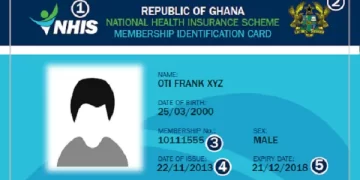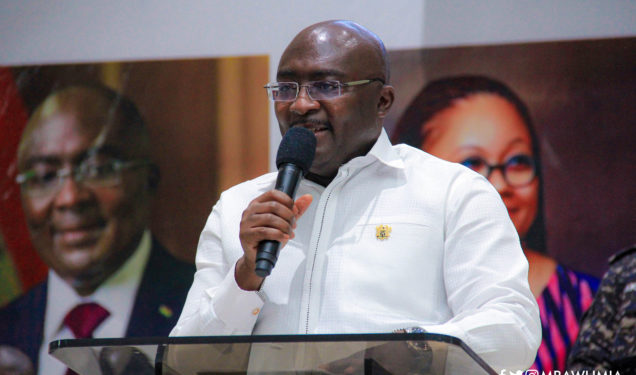Dr. Mahamudu Bawumia, Vice President, believes that critics of the digitization agenda would sing the government’s praises for modernizing Ghana in the coming years.
According to the Vice President, Ghanaians would appreciate the excellent job that the government has begun when the effects of digitalisation become more prevalent.
Dr Bawumia said in a recent story in the February issue of PAV Magazine that the administration is unconcerned about the accusations leveled at it. He did, however, deny the claim that the government’s digitalization strategy is incoherent.
“In politics, criticism from opposing parties and their supporters is to be expected and you need to have a tough skin to just get on with delivering the people’s priorities. As such, whilst I welcome robust debate, the cornerstone of any successful democracy, I strongly disagree with the notion that the digitisation agenda is incoherent, and I am sure that the programme will result in a transformed Ghana…
“We are pursuing a very coherent digitisation strategy. In sum, I have no doubt that as the impacts of digitisation become more widespread, criticism will turn to praise.”
His remarks came after an IT specialist, Ambrose Yennah, cautioned that the digitisation goal would fail if financial and other resources were not supplied to shape and develop the technology industry.
Bright Simons, Vice President of IMANI Africa, has also said that the implementation of several digital projects has shown a lack of policy coherence.
“There are some bright spots, but taken as a whole, it’s not transformative. In some respect, it’s actually quite problematic. There are instances where I fear because it’s so hyper-branded and the political stakes are so high.”
“I think the policy coherence is important, and for these big initiatives that we are talking about, there are internal contradictions that fuel the cynicism. It’s almost as if they were genuinely doing this in good faith,” he said on Citi TV.
Meanwhile, Dr. Bawumia has said that the adoption of the Ghana Card and its connection with other databases would result in a significant decrease in fraud and minor crime.
Again, the Vice President said the Ghana Card will connect those who had once “slipped through the net with essential government services, financial institutions more readily identifiable when they travel domestically or even abroad.”
He noted that, although Ghana has achieved significant progress in recent decades, certain members of society have chosen to live their whole lives without being registered on a government system.
Individuals who refuse to accept technological innovation, he says, would be “left behind, missing out on opportunities to modernize and develop infrastructure that will better serve our citizens.”
Dr. Bawumia claims that the government has so far implemented the national ID card, digital property address system, and mobile money interoperability in Ghana.
Government, National E-Pharmacy, and Digitized Public Services such as Passports, Ports, Driver’s Licenses, Motor Insurance, Births and Deaths, and Social Security are just a few examples.
This is because digitalization is at the heart of President Akufo-Addo’s vission for Ghana, and “we are making great strides in upgrading Ghana’s technological capabilities,” he stated.
“The ‘Ghana Card’, a state-of-the-art, biometric ID card, is the beating heart of this government’s digitisation drive. The card is enfranchising all Ghanaians, connecting them with our fantastic public services, improving their access to finance, and helping our security services in the fight against fraudulent activity,” he added.
Read Also: Bagbin condemns Ghana Police Service over approach in arresting journalists
SOURCE: myjoyonline


























